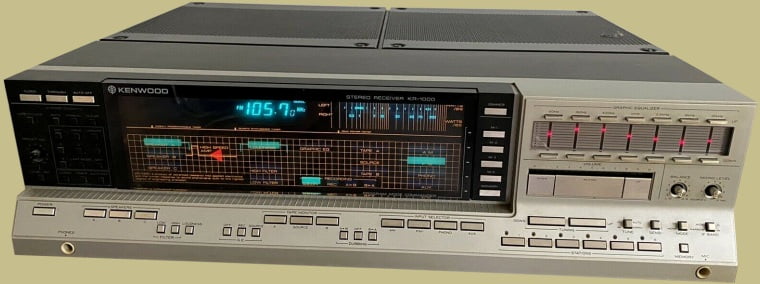
The Kenwood KR-1000 Galaxy Commander receiver has some, shall we say, unusual styling. It hit the market in late 1982 and was indicative of early to mid 1980’s aesthetics with a lot of colorful lights and a multitude of button controlled features. If you’re into silver faced gear then this receiver is probably not appealing to you but if you grew up in the 1980’s with boomboxes and digital clock radios then you might think it looks great. It listed for between $900 and $1000 so it wasn’t cheap by any means.
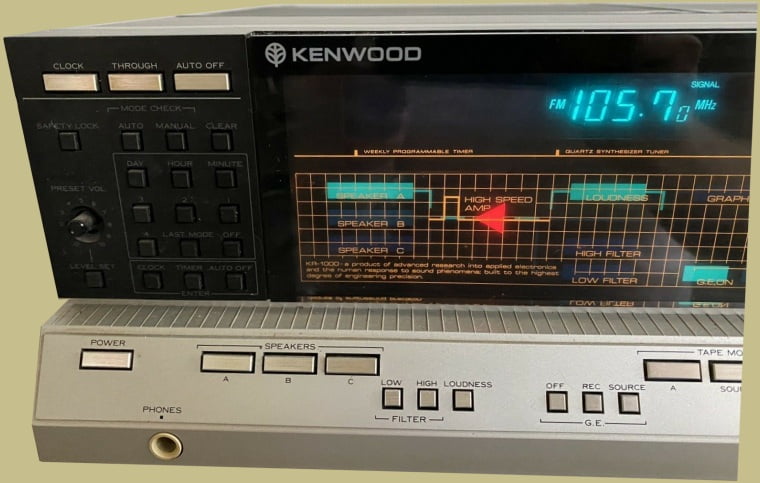
The KR-1000 is no slouch when it comes to power output at 120 watts per channel into 8 ohms. It even has a dynamic power capability of 460 watts giving it plenty of headroom. It also has a respectable 0.01% Total Harmonic Distortion rating.
The “Program Commander” is one of the main features of the KR-1000. It includes four different memories which allow the user to set volume, EQ and Source settings for each memory button and activate any of them via the Timer. It’s great for someone who listens to different genres of music with different settings for each type.
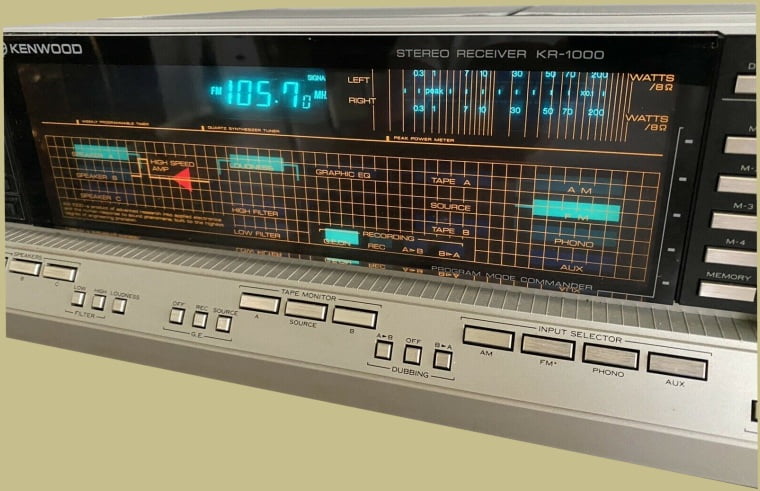
The quartz synthesized tuner is better than expected and the built in 7 band equalizer is nice as well. The receiver has six station presets which isn’t many but presets weren’t quite a big thing in the early 80’s so six was quite a few at the time.
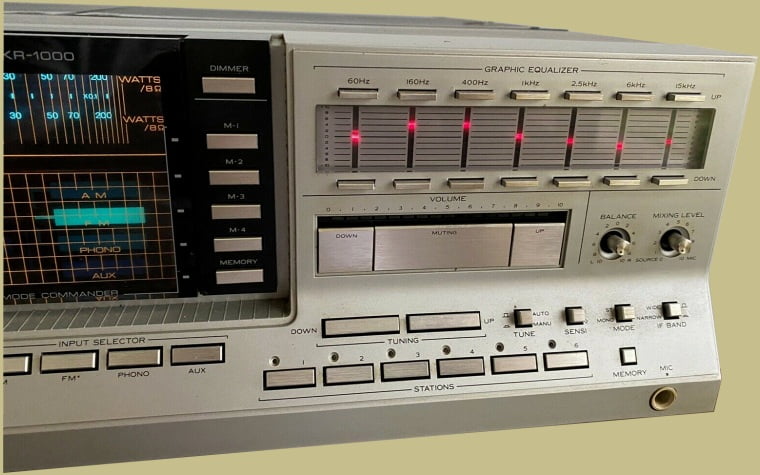
The KR-1000 looks especially attractive when lit up in a dark room. The dial face looks like a futuristic flow chart of some kind. I counted an amazing 76 push buttons on the front of the receiver.
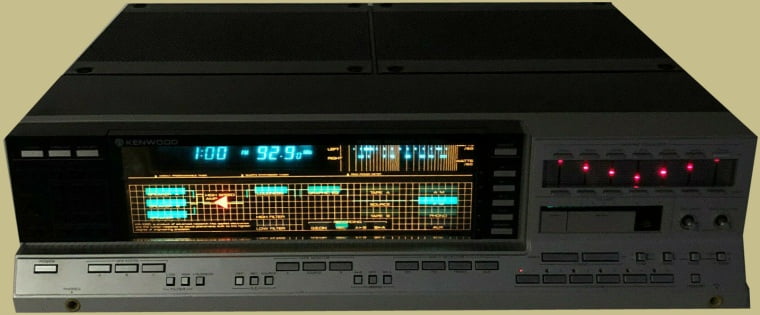
Some of the other features of the Galaxy Commander are:
- Program Mode Commander memory flowchart display
- Multi-functional weekly program clock/audio timer
- 7-band digital graphic equalizer and mic mixing
- Quartz synthesizer scan tuning
- 6 FM/6 AM preset station recall
- Digital volume control and bi-directional dubbing
- Mic Mixing
- Hi-speed, DC, Zero switching amplifier
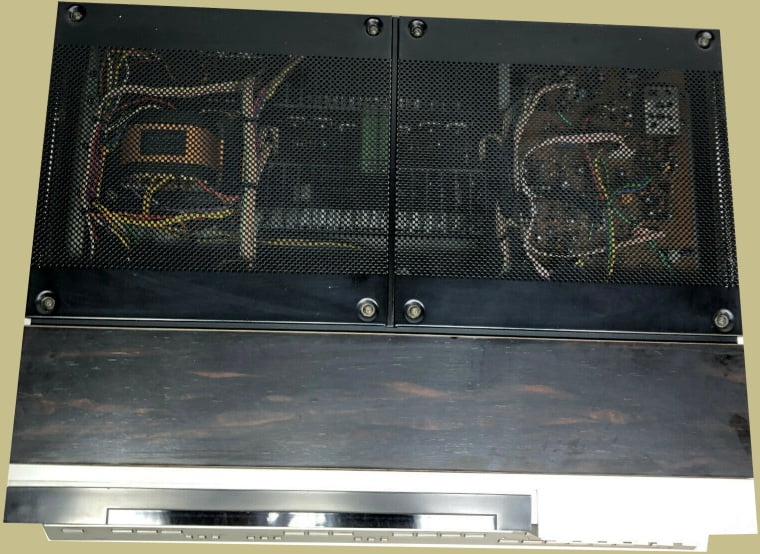
The Kenwood KR-1000 has outputs for 3 sets of speakers. The speakers can be run separately or all three at once.
The insides are neat and organized but it’s still not an easy receiver to work on. Expect any repairs to be expensive. There are a number of CMOS switches in the signal path but the Galaxy Commander still produces good sound. Build quality overall is pretty good but cost cutting measures were starting to take place in the early 80’s. This was reflected in the all plastic front panel of the KR-1000.
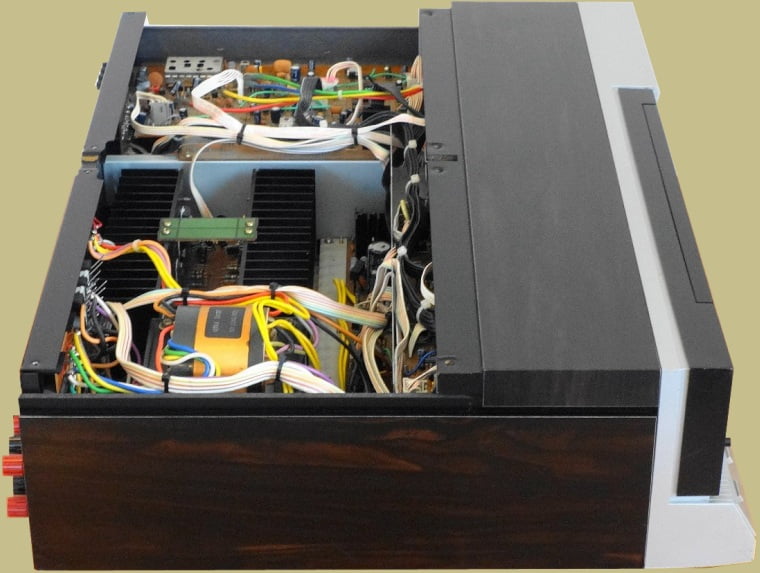
There is also a KR-1000B version that you don’t see very often. It has a black face as opposed to the KR-1000’s gray face. Both have the darker faux wood vinyl on the top and sides.
The KR-1000 weighs in at 16 kg (35.3 pounds) and its dimensions are 550mm x 155mm x 443mm (21 21/32″ x 6 3/32″ x 17 7/16″).
The back panel has the usual speaker outputs, phono, aux, and tape inputs, an impedance selector switch and a de-emphasis switch. Note that there is no pre-out on the back.

If you’re into receivers from the boombox generation of the 1980’s then the Kenwood KR-1000 Galaxy Commander might be one to consider. It has plenty of power, numerous features, a good tuner and that strange look that only some people could love. Prices aren’t too high for this receiver but as the 1980’s generation of kids gets older they might become more sought after and hence more valuable.

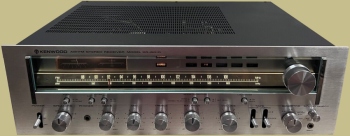
We’re can I get my kr-1000 fix
Where do you live.
Matt’s audio in Milford Ohio.
I have one. I’ve been using it for over five years. It all works and it sounds fine driving a pair of EPI 202’s.